Difference Between Arduino and Raspberry Pi [with Comparison Table]
Written by:

Kostiantyn Oliynyk
Head of IoT at Webbylab
With a robust academic background in Telecommunication Systems Engineering, I apply my knowledge to lead innovations in the IoT domain. Starting as the first team member in the newly formed IoT department at WebbyLab, I've spearheaded its growth, fostering the expansion into embedded and hardware development alongside our core software projects. My dedication lies in pushing the boundaries of IoT technology, fostering a culture of innovation and excellence that profoundly impacts our clients' operational success.
It depends on your specific project requirements and limitations. Arduino is a tiny, easy-to-use microcontroller that works well for small-scale projects that involve controlling physical devices and sensors. Raspberry Pi, compared to Arduino, is a small computer with more processing capacity and memory. It can replace Arduino if necessary, offering wider options for more complex tasks.
Yes, Raspberry Pi can run Windows 10 IoT Core, a version of Windows 10 for embedded devices and the Internet of Things apps. Yet, this isn’t a full Windows version. In this case, you can’t use a graphical user interface (GUI).
No, Arduino cannot do everything that Raspberry Pi can. Unlike Arduino, the latter offers more processing power, memory capabilities, a full-fledged operating system, more input/output options (e.g., HDMI, Ethernet), and audio, image, and video data processing features.
An Arduino board has some industrial applications but isn’t as widespread as Raspberry Pi. There are a few reasons, including limited memory and processing power, safety concerns, lack of industrial communication protocols, and scaling difficulties.
Professional engineers may use both boards depending on the particular project. Arduino works well for home automation, robotics, and control systems. Raspberry Pi, on the other hand, is best for larger projects that need better processing capacity, like data analysis, AI, computer vision, etc.
Arduino vs Pi is best for simple projects that need real-time control of sensors, motors, and lights. On the other hand, Pi vs Arduino is perfect for complex projects with internet connectivity and data processing requirements.
Arduino vs Rasberry Pi offers connectivity through USB. Rasberry Pi vs Arduino provides more options, including Ethernet, HDMI, and USB.
There’s no single answer to which is better Arduino or Raspberry Pi for your pet project — both are decent choices. You can use either Raspberry Pi or Arduino to launch your startup, learn microcontroller programming, and so on.
![Difference Between Arduino and Raspberry Pi [with Comparison Table]](https://webbylab.com/wp-content/uploads/2024/06/upload_66701d6ab7438-791x267.png)

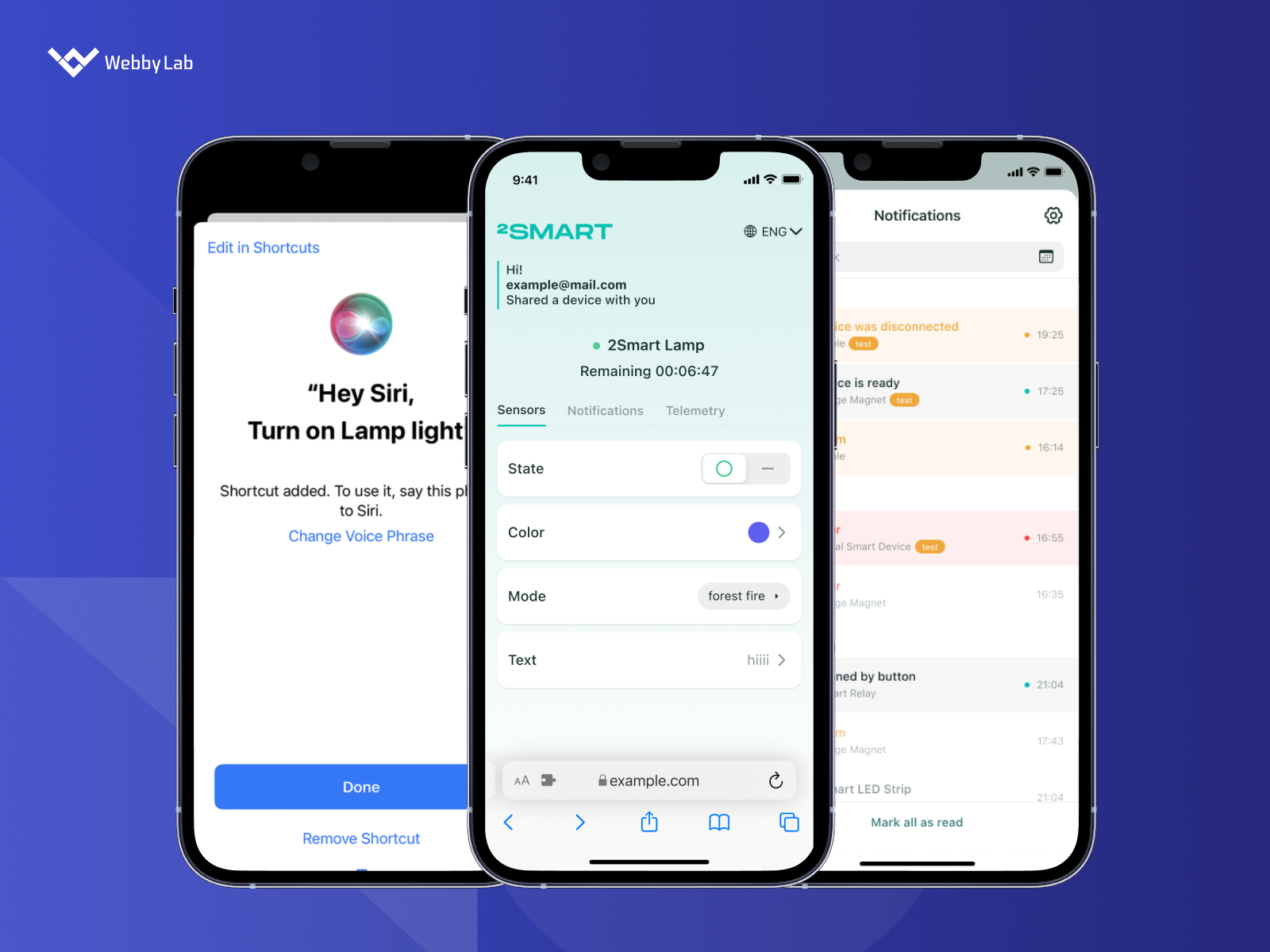 2Smart Cloud mobile application
2Smart Cloud mobile application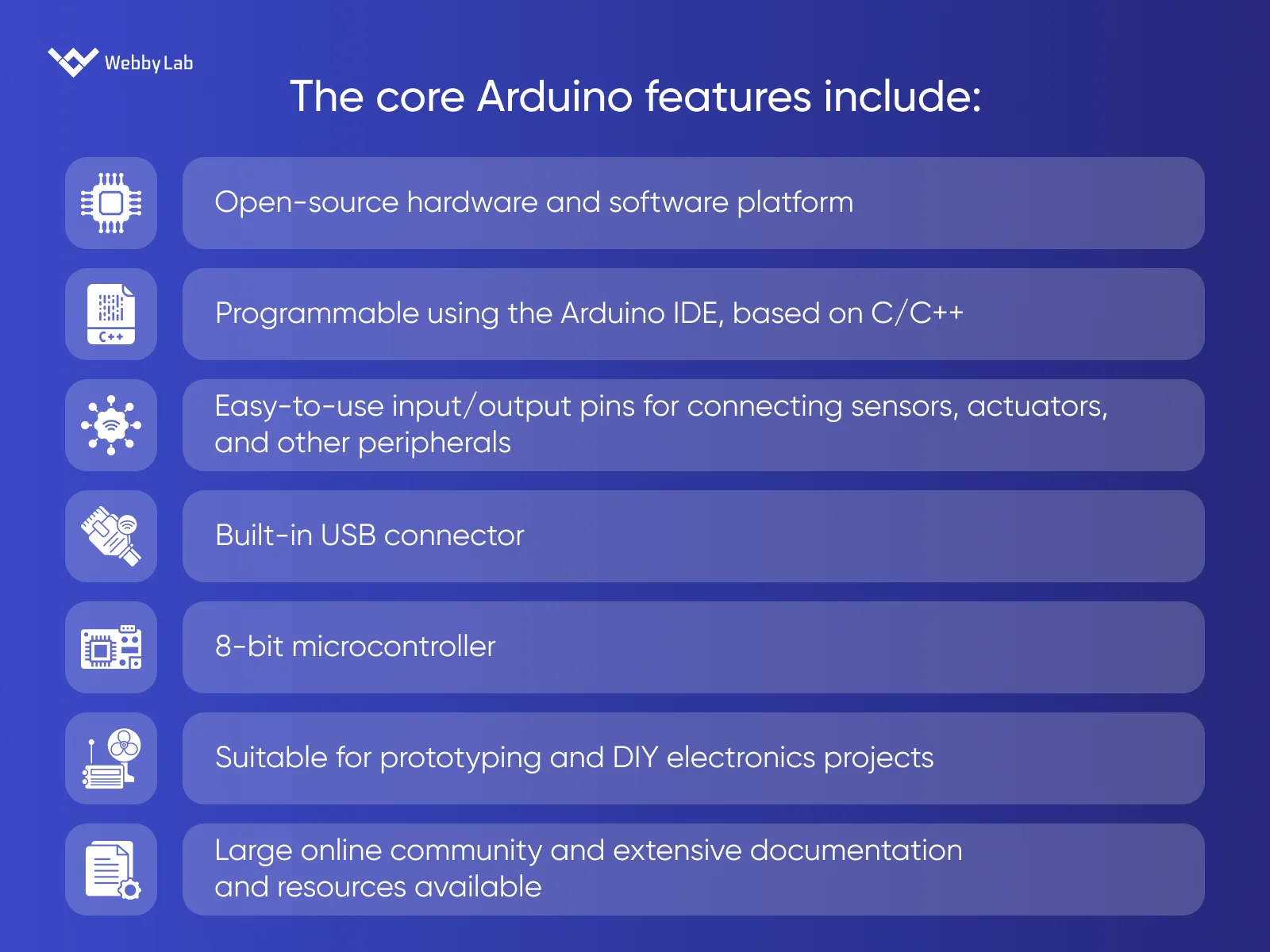
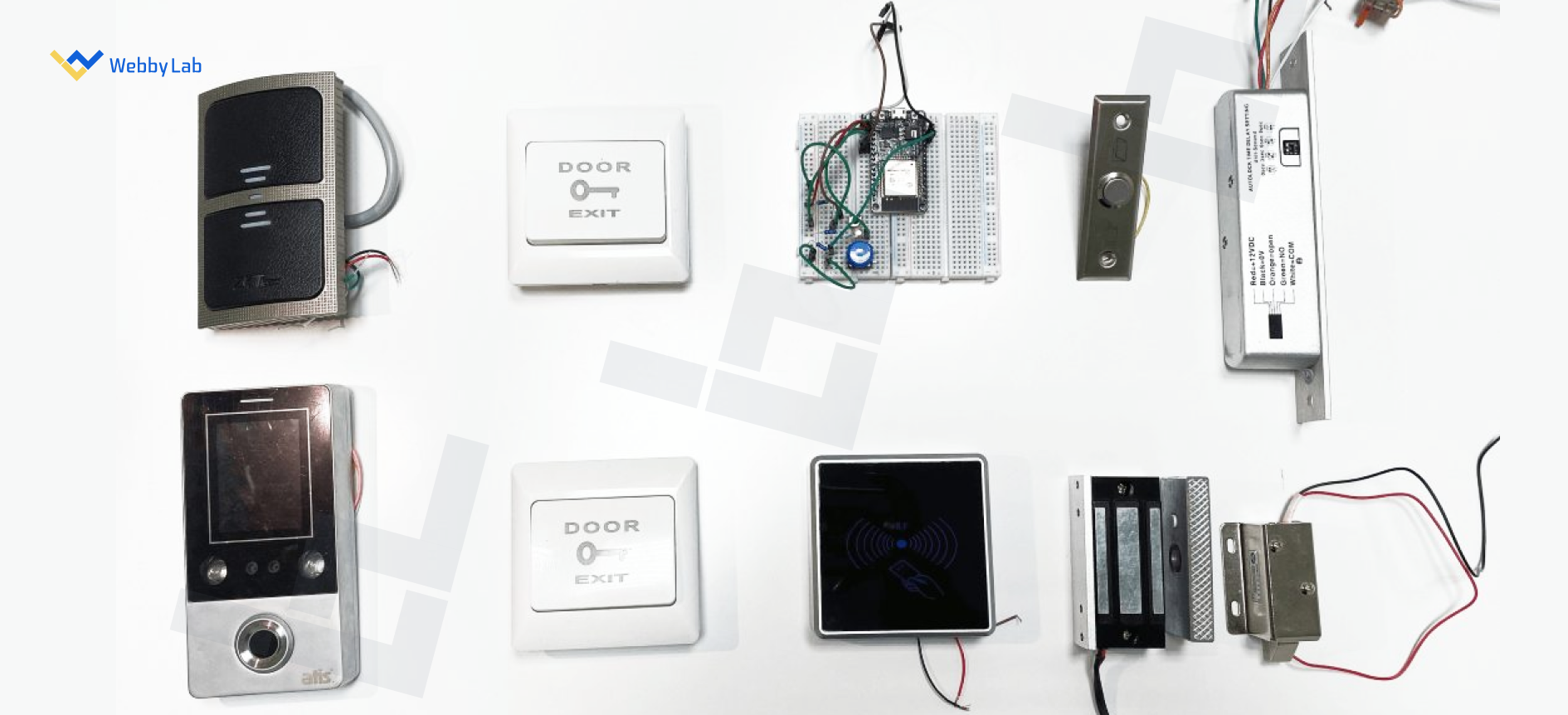 Using Arduino to test the Propuskator controller
Using Arduino to test the Propuskator controller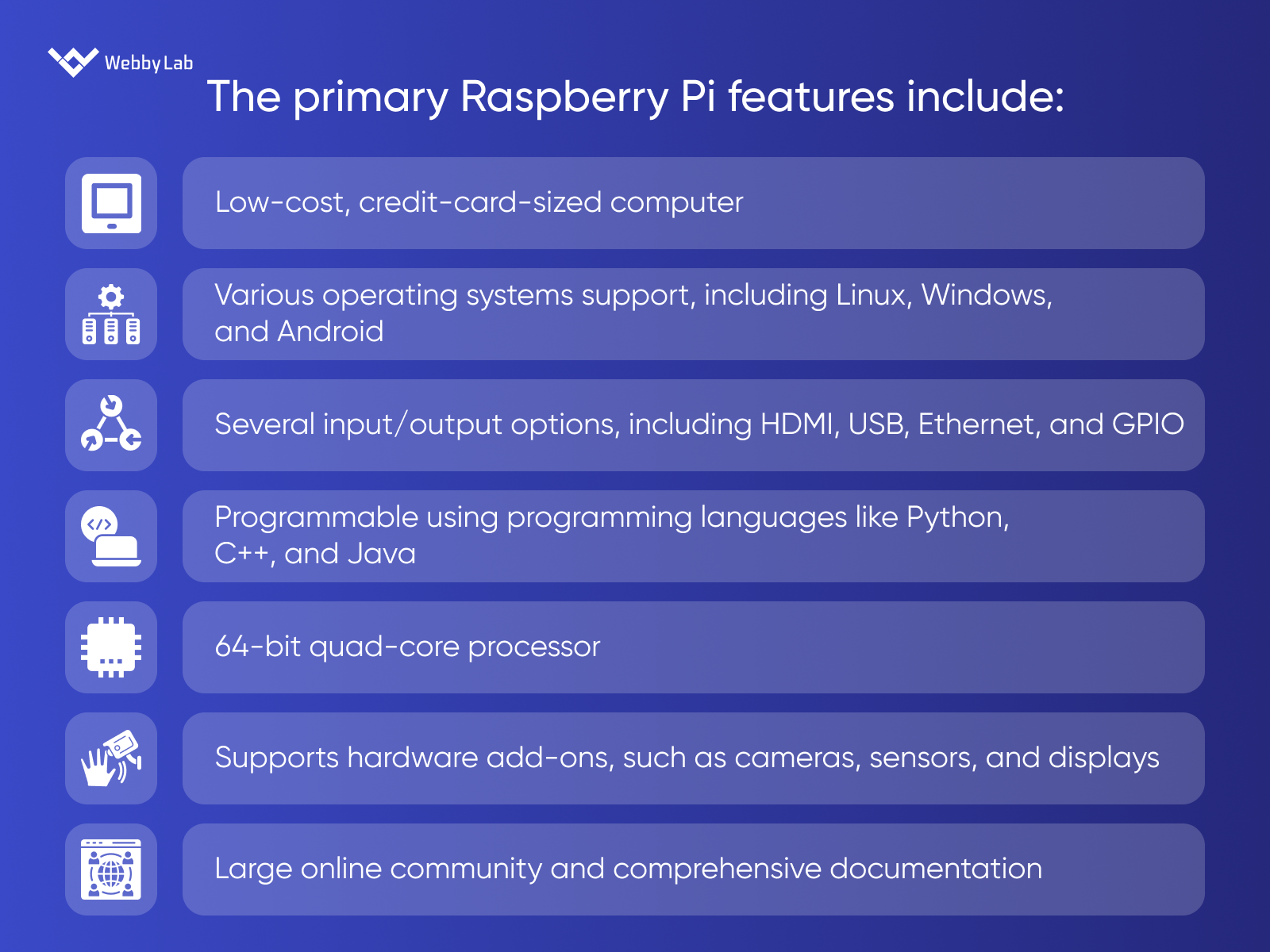
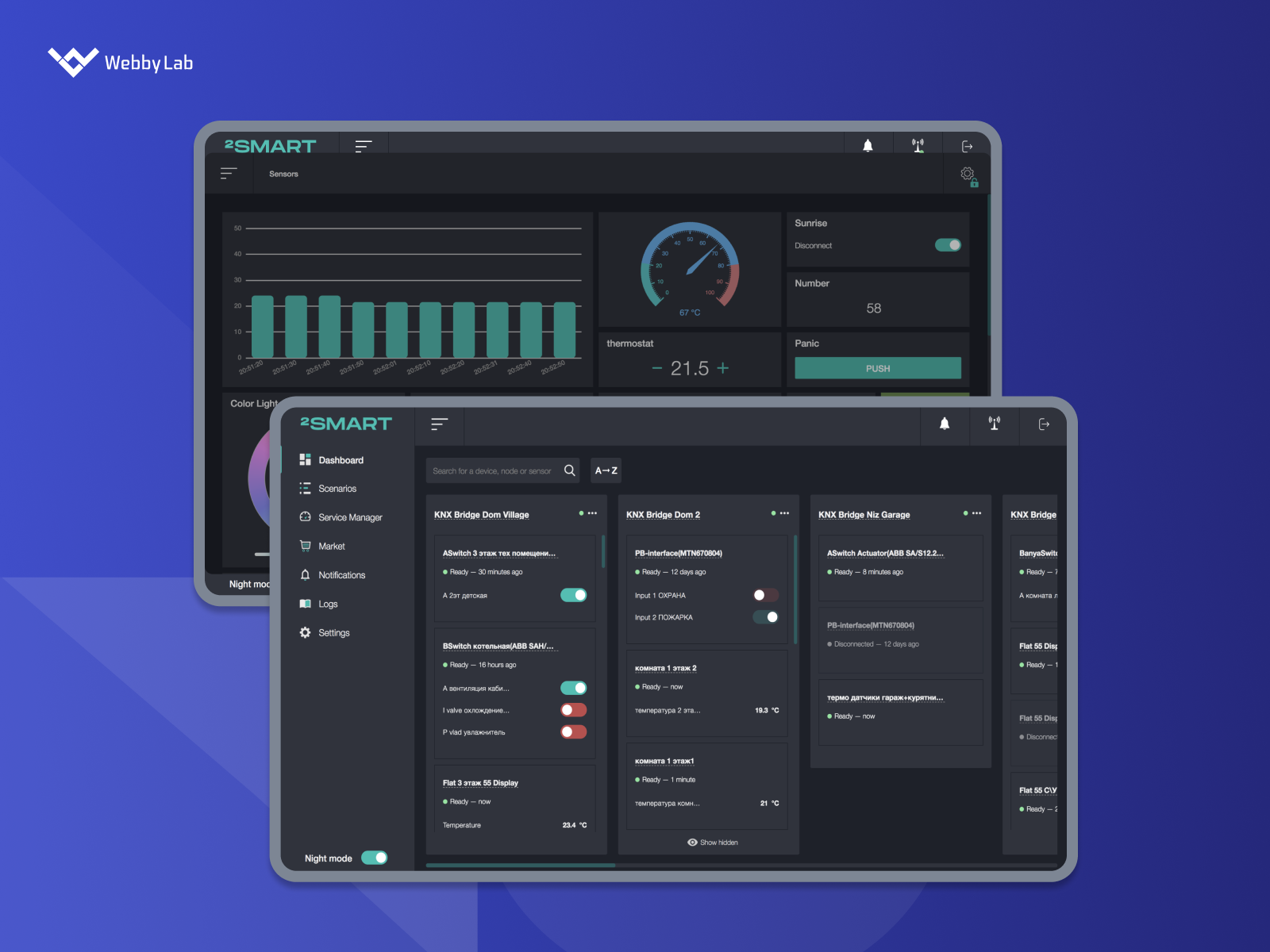 A 2Smart Standalone automation platform by WebbyLab
A 2Smart Standalone automation platform by WebbyLab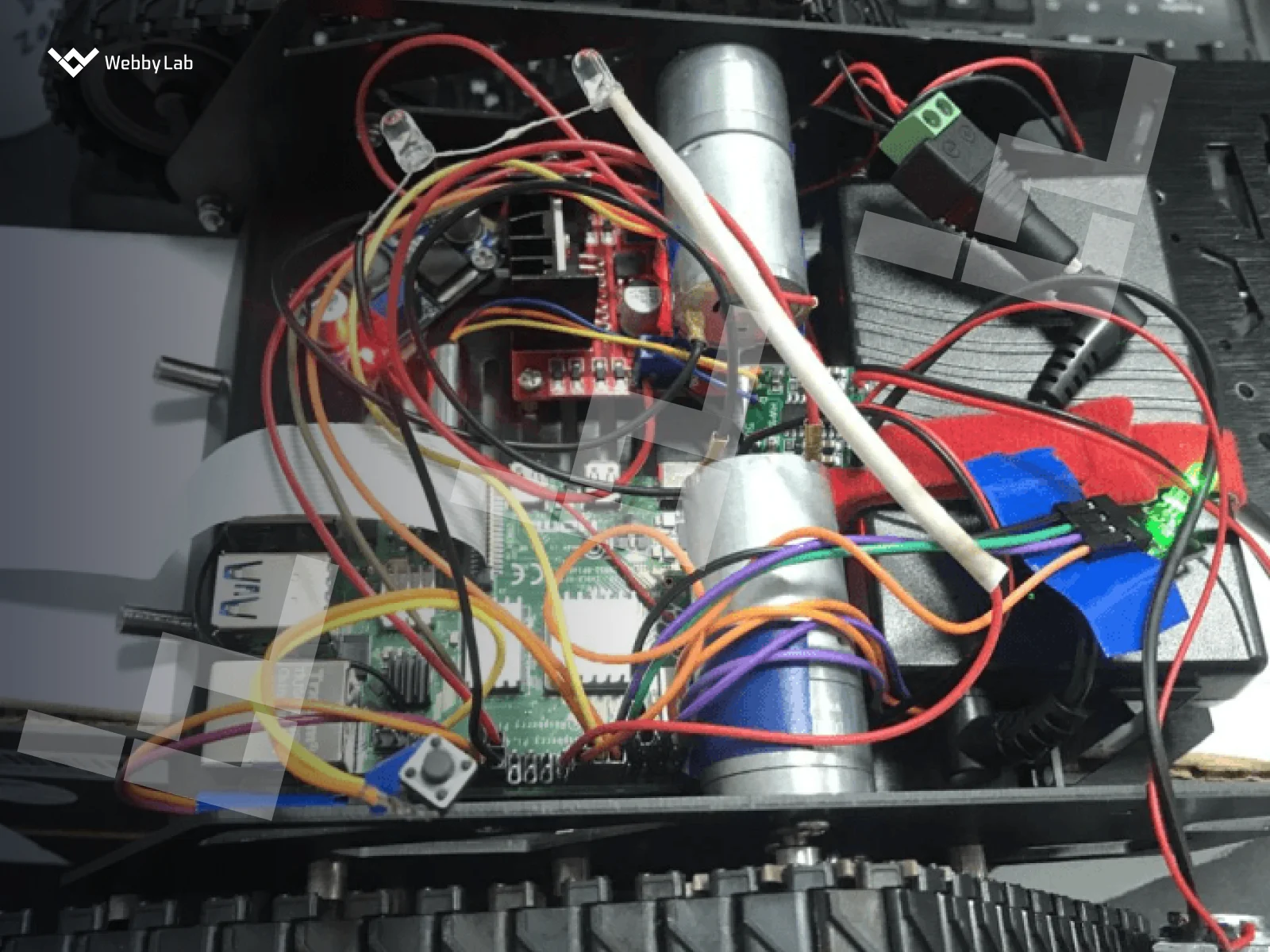 A Raspberry Pi board inside the home security robot built by WebbyLab
A Raspberry Pi board inside the home security robot built by WebbyLab



